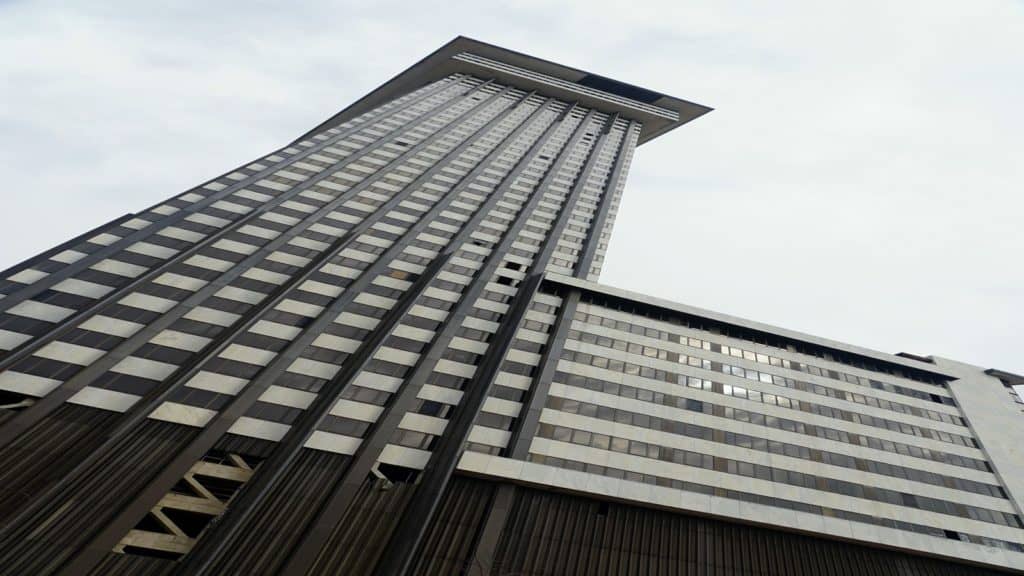
If you’re a New Orleans native, chances are you’d recognize the Plaza Tower anywhere. It’s an iconic skyscraper that’s been around since the 1960s, viewed by some as a historic landmark and by others as a blight on the city’s skyline.
But regardless of where you fall on the question of the tower’s aesthetics, the decaying building is undeniably a safety hazard. Falling debris injured a passing bicyclist on May 20th, leaving many wondering about the future of the building, and who is responsible for any injuries it causes.
As the law firm representing the injured party, Wright & Gray Personal Injury Attorneys can provide some context about the building’s history and premises liability cases in general. When construction was first announced in 1964, the building was hailed as a “symbol of the progressive spirit of the city.” Its eclectic design borrowed from different architectural styles and was intended to be a unique addition to the New Orleans skyline.
But over the decades, various structural, mechanical, and financial problems plagued the building. By the 1980s, the building was already looking outdated, and residents complained about leaks, broken elevators, and toxic mold.
It wasn’t until asbestos was discovered in 2002 that the building was shut down, and in the two decades since, it has passed from one failed development plan to another.
Finally, in 2014, the building was bought by local hotelier and developer Joe Jaeger, who has allowed the building to fall into disrepair. Jaeger has since promised to put up protective materials and has plans to revitalize the building, but has not been forthcoming with details. It’s clear that ever since the building was first built, it has had a poor record with health and safety.
These are just some of the injuries and health problems caused by the property over the years:
- Toxic mold: One of the first incidents was in the 1990s when residents discovered toxic mold in the building and brought a class-action lawsuit against the tower’s then-owners.
- Asbestos: A decade later, the building was finally shut down when asbestos was discovered, prompting another class-action lawsuit.
- Falling debris: Since then, residents of the nearby area have worried for years about falling debris, and as of this year, it seems those concerns were justified. We are looking into legal action with the victim of this accident now.
Anyone who owns property that other people use has a “duty of care” to prevent that property from being unsafe or harming its users.
If the injured party can prove that the property owner was negligent in maintaining the property, then they breached this “duty of care,” and the injured party is entitled to compensation from the property owner.
Types of Premises Liability Cases
In addition to the examples above, here are some of the most common types of premises liability cases:
- slip and fall
- ice and snow
- inadequate building security
- elevator accidents
- pool accidents
- fires
- water leaks or flooding
- dangerous fumes or chemicals
If you are injured in any of these ways by someone else’s property, you may have a case to prove that the property owner acted negligently. The most important step you can take toward recovering damage is to hire a premises liability attorney. At Wright & Gray, we represent clients who have been injured in all sorts of accidents, including premises liability accidents. We dedicate ourselves to getting every client the settlement he or she needs to recover. Contact us today to schedule a free consultation.
